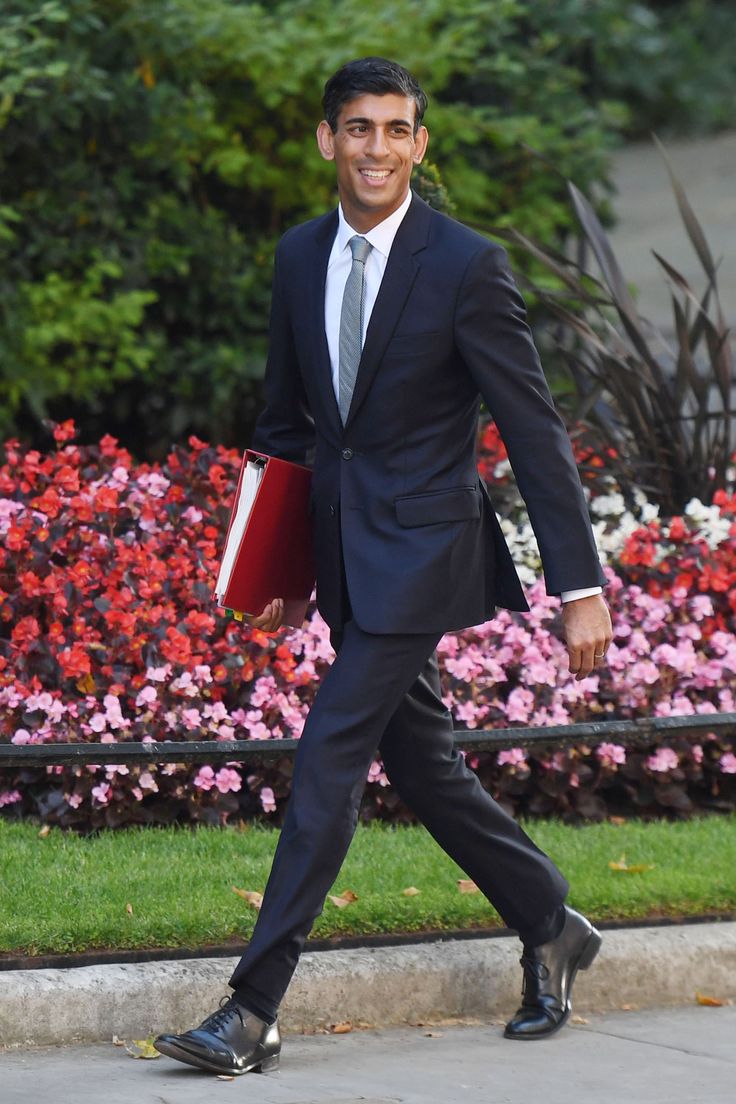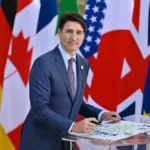Rishi Sunak 2025: Prime Minister of the United Kingdom
Full Name: Rishi Sunak
Born: May 12, 1980, Southampton, Hampshire, United Kingdom
Nationality: British
Political Party: Conservative Party
Office: Prime Minister of the United Kingdom (2022–present)
Previous Offices: Chancellor of the Exchequer (2020–2022), Member of Parliament (MP) for Richmond (2015–present)
Early Life and Education: Rishi Sunak
Rishi Sunak was born in Southampton, England, to Indian immigrant parents of Punjabi Hindu descent. His father, Yashvir Sunak, was a NHS doctor, and his mother, Usha Sunak, worked as a pharmacist. Sunak’s family background in healthcare and business provided him with a strong work ethic and an understanding of the value of education.
Sunak was educated at Winchester College, an elite private school where he excelled academically. He then went on to study at Oxford University, where he earned a degree in Philosophy, Politics, and Economics (PPE), a traditional path for many British politicians. Later, he received an MBA from Stanford University, where he met his wife, Akshata Murthy, who is the daughter of the Indian billionaire founder of Infosys, Narayan Murthy.
Early Career and Business Experience; Rishi Sunak
Before entering politics, Sunak had a successful career in the business and finance sectors. He worked for Goldman Sachs in investment banking and later for Hedge Fund Management. His experience in the financial industry and his education at prestigious institutions gave him an edge in understanding economics and business practices, skills he would later leverage in government.
Sunak’s professional background helped shape his political career, as he advocated for fiscal conservatism, economic growth, and market-friendly policies. His business-oriented approach was central to his tenure as Chancellor of the Exchequer.
Entry into Politics; Rishi Sunak
Rishi Sunak entered politics in 2015 when he was elected as the Member of Parliament (MP) for Richmond, a constituency in North Yorkshire, representing the Conservative Party. His campaign emphasized his background in business and finance, as well as his dedication to public service and his desire to represent the middle class.
His rise within the Conservative Party was swift. Sunak became known for his pragmatic approach to policymaking, focusing on issues such as economic growth, fiscal responsibility, and technological innovation.
Chancellor of the Exchequer (2020–2022); Rishi Sunak
In February 2020, Sunak was appointed Chancellor of the Exchequer under Prime Minister Boris Johnson, following the resignation of Sajid Javid. As Chancellor, Sunak played a pivotal role in the UK government’s response to the COVID-19 pandemic.
Sunak’s leadership during the pandemic was widely praised for the introduction of the furlough scheme, which provided financial assistance to workers and businesses affected by lockdowns and the economic downturn. The furlough program was one of the largest government support schemes in history, and it helped save millions of jobs in the UK.
In addition to the furlough scheme, Sunak introduced loans for businesses, self-employed support, and tax relief measures. His handling of the economic fallout from the pandemic earned him widespread recognition and boosted his political standing within the Conservative Party.
However, his tenure as Chancellor was not without challenges. Sunak faced criticism over the handling of public spending, especially in relation to rising debt levels, as well as concerns about the government’s approach to inflation and cost-of-living issues. His position on economic austerity, particularly his support for tax cuts while reducing public spending, made him a figure of debate in political circles.
Prime Minister of the United Kingdom; Rishi Sunak
Leadership Amidst Political Crisis: Rishi Sunak
In the summer of 2022, after the resignation of Boris Johnson following a series of scandals and political instability, Sunak emerged as a leading candidate for the Conservative leadership. Despite facing competition from other prominent Conservatives, including Liz Truss, Sunak’s economic experience and more moderate stance on many issues resonated with key party members.
Rishi Sunak became the leader of the Conservative Party in October 2022 after Liz Truss resigned due to mounting pressure over her economic policies. Sunak’s ascent to the top of the government came at a time when the UK was facing an economic crisis, with rising inflation, high energy costs, and ongoing uncertainty due to Brexit and global political tensions.
Economic Leadership and Policies: Rishi Sunak
Upon becoming Prime Minister, Sunak immediately focused on addressing the economic challenges facing the UK, including inflation, public debt, and energy prices. His policies centered around fiscal responsibility, market stability, and ensuring that the UK could weather global economic shocks, particularly in the aftermath of the COVID-19 pandemic and Russia’s invasion of Ukraine.
One of his early decisions was to announce a comprehensive energy support package, aimed at capping energy prices and providing targeted financial assistance to vulnerable households and businesses. Sunak’s leadership during this crisis was critical, as many households struggled with skyrocketing fuel bills due to global energy shortages exacerbated by the war in Ukraine.
International Relations and Foreign Policy: Rishi Sunak
On the global stage, Sunak has prioritized strengthening the UK’s relationship with key allies, including the United States, the European Union, and NATO. Sunak has been firm in his support for Ukraine, continuing the UK’s military and economic aid to the country amid Russia’s aggression. His foreign policy approach has been pragmatic, focusing on protecting British interests while maintaining international alliances.
Sunak has also played a role in navigating post-Brexit relations, particularly with the European Union. He has worked on ensuring that the UK’s departure from the EU does not negatively impact the British economy and has sought new trade opportunities with countries outside Europe.
Tackling Cost of Living and Economic Inequality: Rishi Sunak
Sunak’s government has faced growing concerns about the cost of living crisis, particularly regarding food and housing prices. He has promised to implement measures aimed at reducing inflation, improving public services, and providing support for the most vulnerable citizens. However, some critics argue that his measures have been insufficient to address the scale of the crisis.
Additionally, Sunak’s background as a wealthy former hedge fund manager has led to criticisms from opponents who argue that his policies disproportionately benefit the wealthy elite rather than the working class. Critics have pointed to his personal wealth, including his wife’s substantial fortune, as an issue when addressing issues of inequality.
Challenges and Criticism: Rishi Sunak
Rishi Sunak’s tenure as Prime Minister has been marked by several challenges:
- Economic Strain: The UK’s economic recovery has been slower than anticipated, with inflation rates soaring and cost-of-living pressures mounting. Sunak faces significant challenges in addressing the economic fallout from the COVID-19 pandemic, the energy crisis, and the impacts of Brexit.
- Internal Party Tensions: Sunak’s position within the Conservative Party is not without tension. The party is deeply divided over the direction of the government, particularly on issues like taxation, government spending, and economic austerity. Sunak has had to balance competing factions within his party while also trying to appeal to the broader electorate.
- Public Perception: As a leader from a privileged background, Sunak has faced challenges in gaining trust among working-class voters. His critics have accused him of being out of touch with the struggles faced by ordinary citizens, particularly as his government grapples with rising inequality and social unrest.
- Brexit Fallout: Sunak inherited the ongoing challenges of Brexit, including managing trade relationships with the European Union and addressing the economic consequences of leaving the single market.
Legacy and Future: Rishi Sunak
Rishi Sunak’s leadership is still evolving, and his long-term legacy will depend on how effectively he can manage the economic and political challenges facing the UK. His background in business and finance has equipped him with the skills needed to navigate complex economic issues, but his ability to unite the country and address social inequality will be central to his place in history.
Sunak’s leadership will likely be defined by how well he manages the cost of living crisis, how the UK’s relationship with the EU and the rest of the world evolves, and his handling of the ongoing energy and healthcare issues. Whether his pragmatic approach can secure him lasting support among the British public remains to be seen.
In a deeply polarized political environment, Sunak faces the monumental task of restoring confidence in the Conservative Party while tackling urgent national and global issues.










